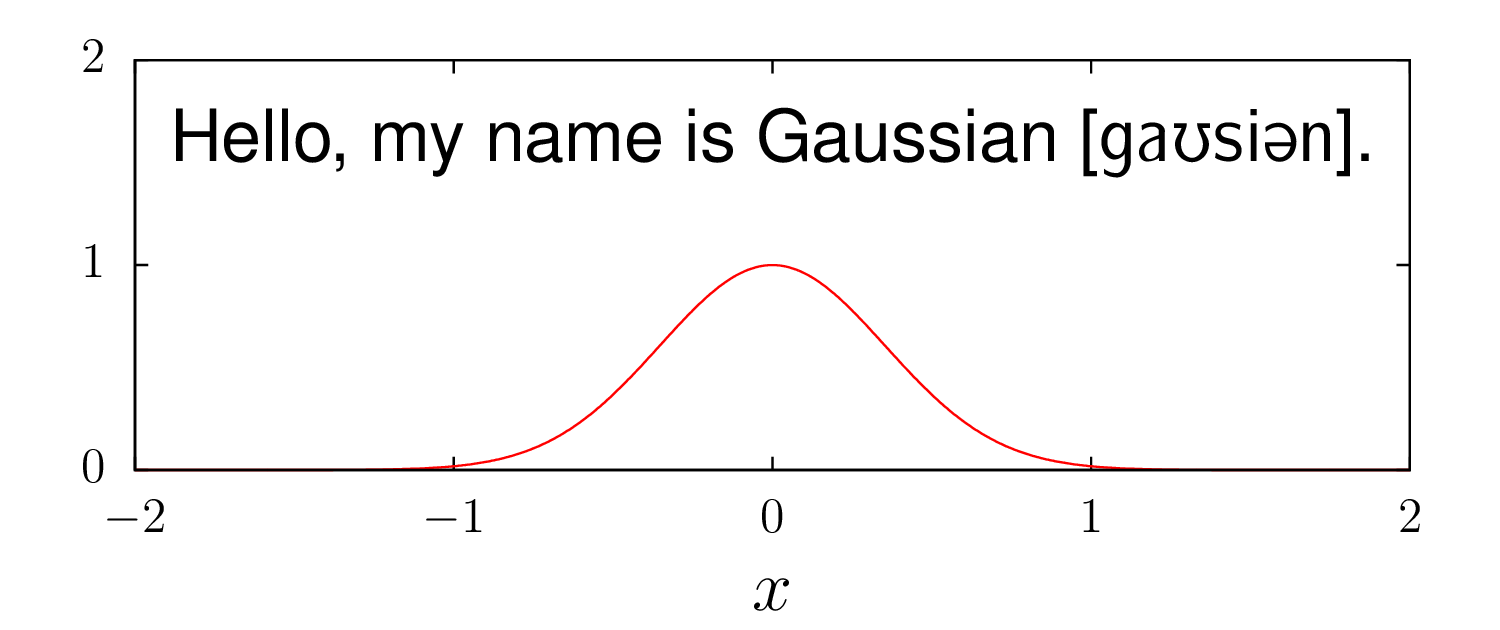Mathematical English: How to pronounce Gaussian
As you may remember from school, the bell-shaped curve that plays a key role in statistics, often referred to as a normal distribution, is also called a Gaussian. I have noticed that there is a lot of confusion and variation regarding the pronunciation of the word Gaussian, in particular among German native speakers. The reason is that Gaussian is related to name of the great German mathematician Carl Friedrich Gauss (the German spelling is Gauß).
The pronunciation of Gaussian becomes rather obvious if we first consider the pronunciation of Gauss. In German and English, Gauss is pronounced as [gaʊs], and hence rhymes with house. In English, a common incorrect pronunciation is [gɔːs], with the “au” pronounced as in other English words like authentic or cause. (“au” is very often pronounced as [ɔː] in English; my fellow Austrians are hereby reminded that this includes the word Austria.) Evidence for this pronunciation of Gauss can be found in the Longman Pronunciation Dictionary, as well as here. Note that gauss is also used as a unit to measure the strength of magnetic fields.
According to the Longman Pronunciation Dictionary, the correct pronunciation of Gaussian is [gaʊsiən]. That means that Gaussian is pronounced like Gauss, plus the ending “-ian”, which is also found in words such as Austrian or Indian. Some common incorrect pronunciations of Gaussian are [gɔːsiən] (see discussion above), [gaʊ(s)ʃiən] and [gaʊ(s)ʃn] (some people pronounce it with s and ʃ, others only with ʃ). The last two variants are most likely related to German expressions such as Gaußsche Verteilung (Gaussian distribution). However, whereas “ss” can be pronounced either as [s] or as [ʃ] in words such as issue, this is apparently not the case for Gaussian.
You may also be interested in how to pronounce fractions and powers.
